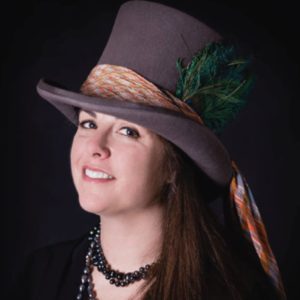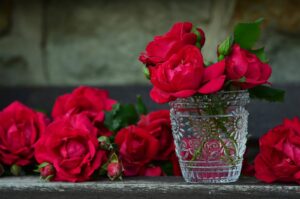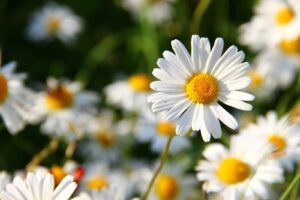“All your life you are told the things you cannot do. All your life they will say you’re not good enough or strong enough or talented enough. They will say you’re the wrong height or the wrong type to play this or be this or achieve this. THEY WILL TELL YOU NO. A thousand times no. Until all the no’s become meaningless. All your life they will tell you no quite firmly and very quickly. AND YOU WILL TELL THEM YES.” — Nike
I grew up playing every sport imaginable. My father was in the hospitality industry. We had the privilege of living in a golf community with a clubhouse where swimming, golf, and tennis instructors were readily available. Golf and tennis were essential in many parts of my life. From corporate golf tournaments to playing a round with my dad to catch up when I was in college, having the knowledge of these sports has given me a common language with other sports enthusiasts. This proved especially beneficial when I moved from Colorado to Aiken. I even played on the Gem Lakes Tennis Team for a couple of years before my daughters arrived.
I grew up in Florida, and I learned to swim at the age of two. My love for the water led me to 10 years in competitive swimming. I moved from Florida to Colorado at the age of 10, and competed every summer until high school, and then swam year round as a member of the high school swim team. I always felt healthy and strong, swimming every day. I became a lifeguard and swim coach, and I learned a lot about going the distance and pushing through, about safety, and about how to help others.
In the winters in Colorado we spent every weekend in the mountains at one of my father’s hotels. I skied every winter through college, and also mastered snowboarding as well as telemark skiing, which I absolutely loved! Skiing helped to keep me in shape and feeling strong. It also helped with my mental strength. It was peaceful and quiet on the slopes. It was a time for reflection, self-discovery, and calm.
I tried soccer, volleyball, baseball, and softball. These sports didn’t last because I was more of an introvert — I liked the solitude of swimming, skiing, and golf.
These days I love hiking. I feel best when I am outside in nature, and hiking builds my strength mentally and physically. With the current mandate to isolate ourselves, I am fortunate to have a sport I can still enjoy. For those of you who have a love of sports but have lost the ability to play or go to games, my thoughts and prayers are with you. Stay strong both mentally and physically. We will survive.
~ Ladonna Armstrong
Thanks to the coronavirus, life has changed. Downtown is deserted. Church services, meetings, classes, social gatherings, and play dates take place online if at all. We avoid hand shakes and spontaneous hugs. We guard our sanity as well as our toilet paper supply.
And yet, the dogwoods are in bloom. Leaves are appearing on trees. Grass is greening. Perhaps now there is more time to notice these things, to have longer conversations about mulch and fire ants with neighbors (at a safe distance), to explore new pastimes, to return to simpler things.
In this context, it’s helpful to remember that the world has survived dire situations before. In 1948, a few years before the development of the Savannah River Site and its “bomb factory” in the Aiken area, C.S. Lewis wrote an essay entitled “On Living in an Atomic Age.” We share with you a few excerpts, and invite you to replace the words “atomic bomb” with “coronavirus.”
In one way we think a great deal too much of the atomic bomb. “How are we to live in an atomic age?” I am tempted to reply: “Why, as you would have lived in the sixteenth century when the plague visited London almost every year, or as you would have lived in a Viking age when raiders from Scandinavia might land and cut your throat any night; or indeed, as you are already living in an age of cancer, an age of syphilis, an age of paralysis, an age of air raids, an age of railway accidents, an age of motor accidents.”
Later in the essay he writes the following. Note his reference to microbes near the end!
This is the first point to be made: and the first action to be taken is to pull ourselves together. If we are all going to be destroyed by an atomic bomb, let that bomb when it comes find us doing sensible and human things — praying, working, teaching, reading, listening to music, bathing the children, playing tennis, chatting to our friends over a pint and a game of darts — not huddled together like frightened sheep and thinking about bombs. They may break our bodies (a microbe can do that) but they need not dominate our minds.
So while we make the best of the difficult situation facing our world, let us continue to isolate but also continue to live joyfully.
~ RW, editor

























